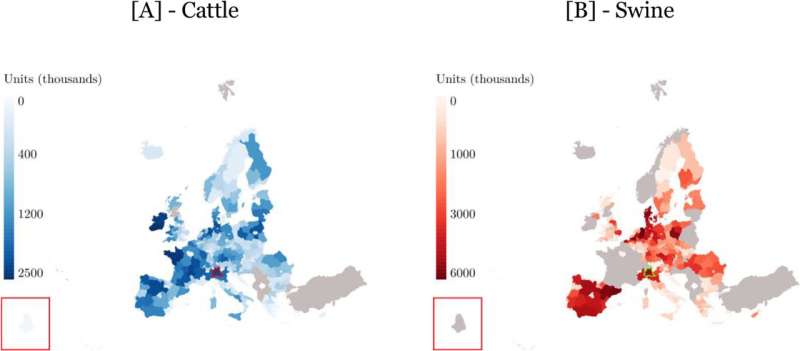Northern Italy's air quality woes may have a surprising culprit: livestock farming. A new study reveals that agricultural activities, particularly those involving cattle and pigs, could be responsible for up to 25% of air pollution in the Lombardy region.
This research, titled "Exploring the impact of livestock on air quality: A deep dive into Ammonia and particulate matter in Lombardy," emphasizes the need for stricter regulations in the agricultural sector to combat air pollution alongside measures targeting traffic emissions.
The study, published in Environmental Impact Assessment Review, comes amidst growing concerns about air quality in Lombardy, a region notorious for its poor air. The culprit behind this unhealthy air? Ammonia (NH3) emissions from livestock manure management and fertilizer use.
"The Po Valley is infamous for its residents having to breathe some of the most polluted air in Europe," says lead author Jacopo Lunghi from Bocconi University and CMCC Foundation. "Understanding the sources of this pollution is crucial to take effective action and improve public health."
The study highlights how ammonia, released from animal husbandry, transforms into harmful particulate matter (PM2.5) when it reacts with other pollutants like sulfur and nitrogen oxides. This PM2.5 is linked to respiratory illnesses like pneumonia.
The research demonstrates a direct correlation between livestock population and air pollution levels. An increase of 1,000 livestock units triggers a measurable rise in ammonia and PM2.5 concentrations.
"Lombardy suffers from a combination of factors," explains CMCC researcher Lara Aleluia Reis. "Dense population, high industrial activity, and unfavorable geographical conditions all contribute to the problem. While efforts are underway to address emissions from transportation and residences, the agricultural sector, particularly livestock farming, cannot be ignored."
The study's authors believe their findings can pave the way for a more sustainable agricultural future. "Understanding the environmental impact of intensive livestock farming can guide us towards practices that minimize environmental harm and public health risks," says Maurizio Malpede from the University of Verona.
"Sustainable farming practices that optimize resource use and reduce waste can create a more efficient production system," Malpede continues. "Furthermore, these findings can inform policy decisions to protect public health and the environment, while also empowering consumers to make informed dietary choices that contribute to combating climate change."




0 Comments